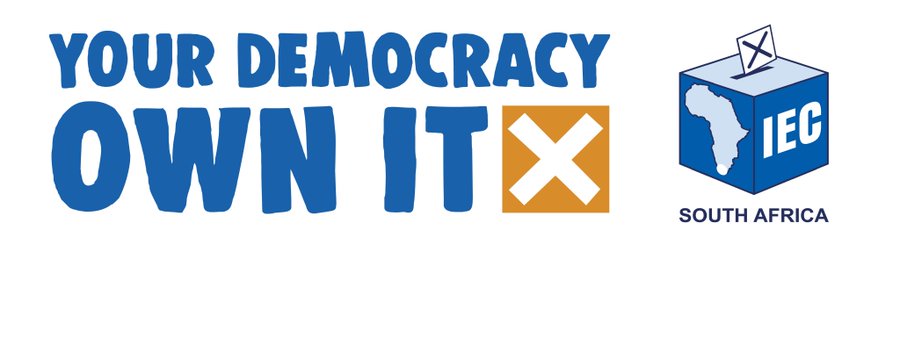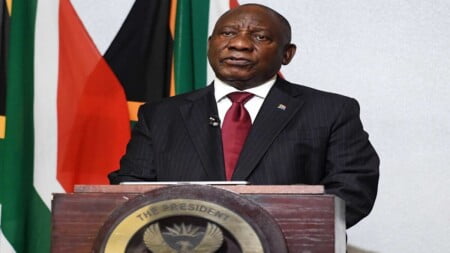The 2024 South Africa Election Final Results have marked a monumental shift in the country’s political landscape. With 16,025,198 votes cast and a turnout rate of 58.61%, the results have brought significant changes, particularly for the ruling African National Congress (ANC), which has lost its 30-year long parliamentary majority.
2024 South Africa Election Final Results Overview
The 2024 South Africa Election Final Results have brought significant changes to the political arena:
- African National Congress (ANC): Secured 39.77% of the National Assembly vote, translating to 159 out of the 400 seats in parliament. This represents a significant decline of 71 seats from the 2019 elections. The loss marks a historic shift, ending the ANC’s 30-year dominance in the National Assembly. The decline in support reflects a broader sentiment among voters seeking change and accountability from the ruling party. This reduction in seats highlights a growing demand for political diversity and new leadership approaches within the country.
- Democratic Alliance (DA): As the main opposition party, the DA has made notable gains. The party’s share of the vote increased, enabling it to solidify its position as a critical player in the upcoming coalition negotiations. The DA’s success in various provinces also indicates a shift in voter loyalty and the potential for the party to influence key policy areas moving forward.
- MK Party: The MK Party, a relatively new player in South African politics, has made surprising inroads in the 2024 elections. Their campaign struck a chord with a segment of the population disillusioned by the traditional parties. The MK Party secured a respectable number of seats in both national and provincial legislatures, indicating a potential rise in influence and a new voice in the political arena.
National Assembly Results
The 2024 South Africa Election Final Results, announced on June 2, 2024, by the Electoral Commission (IEC), highlighted the following key points:
- Total Votes Cast: 16,025,198
- Turnout Rate: 58.61%
- ANC’s Share of National Assembly Vote: 39.77%
- Seats Won by ANC in National Assembly: 159 out of 400
Provincial Legislature Results
The ANC’s loss of majority in key provincial legislatures means that coalition governance will become a necessity. This shift signals the end of an era and the beginning of a new phase in South Africa’s political dynamics.
A New Political Landscape
The ANC‘s loss extends beyond the national level, with the party losing its majority in the provincial legislatures of KwaZulu-Natal, Gauteng, and Northern Cape. This necessitates the formation of coalition partnerships both nationally and within these provincial legislatures for the ANC to play a significant role in the formation of the seventh administrations.
The Role of the IEC
The IEC, led by Chief Electoral Officer Sy Mamabolo and IEC Chairperson Mosotho Moepya, played a crucial role in ensuring the elections were conducted fairly and transparently. On June 2, 2024, they declared the elections free and fair, urging the nation to honor the choices of the voters.
Moepya emphasized that these elections marked a pivotal moment in South Africa’s democracy, being highly contested and challenging.
Election Day Challenges
By 10 pm on June 1, the IEC had captured 100% of the final results. However, they had to address 579 objections related to the counting and capturing process.
Moepya condemned the attacks and intimidation faced by IEC officials from some political figures and their supporters, asserting that these attempts to undermine the institution’s integrity had failed.
The Road Ahead
The 2024 South Africa Election Final Results have reshaped South Africa’s political future. The ANC must now navigate coalition politics, working with other parties to form stable governments both nationally and provincially. This new era of coalition politics presents both challenges and opportunities for South Africa’s democracy.
Implications for South African Politics
- Coalition Governments: With the ANC losing its majority, coalition governments will become the norm. This could lead to more inclusive governance but may also bring challenges in terms of policy-making and stability.
- Voter Sentiment: The reduced support for the ANC reflects a shift in voter sentiment, signaling a demand for change and accountability from the ruling party. This shift may influence future election strategies and party policies.
- Provincial Dynamics: The loss of majority in key provinces like KwaZulu-Natal, Gauteng, and Northern Cape will require the ANC to negotiate and collaborate with other parties, potentially leading to more diverse and representative provincial administrations.
The Importance of Electoral Integrity
The 2024 South Africa Election Final Results have underscored the importance of maintaining the integrity of the electoral process. The IEC’s handling of objections and its commitment to transparency have reinforced public trust in the electoral system. Ensuring free and fair elections is crucial for the continued development and stability of South Africa’s democracy.
Looking Forward
As South Africa moves forward, the focus will be on how coalition governments can effectively manage the country’s diverse political landscape. The ANC’s ability to adapt to this new reality will be crucial for its future success. The 2024 South Africa Election Final Results have set the stage for a dynamic and evolving political environment, where the will of the people will continue to shape the nation’s destiny.
The 2024 South Africa Election Final Results have truly marked a turning point in the nation’s political history. With the ANC losing its parliamentary majority for the first time in 30 years, the future of South African politics looks set to be defined by coalition governance and the need for collaborative leadership. The IEC’s commitment to a transparent and fair electoral process has reinforced the importance of electoral integrity in strengthening the country’s democracy.
As the nation adapts to this new political landscape, the focus will be on building a stable and inclusive government that reflects the diverse aspirations of its people.










![[Watch] IEC Election Results Announcement – 2024 National Elections IEC Election Results Announcement](https://statuscheck.co.za/wp-content/uploads/2024/06/Election-Results-2024-2-1-450x253.jpg)